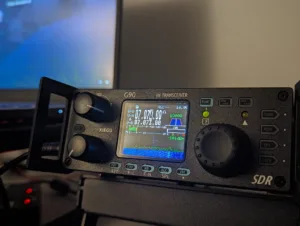Hey there, and welcome! Today, we’re diving into the fascinating world of amateur (ham) radio. Ham radio is something that’s been connecting people across the globe for over a century. It’s a fun hobby that many of our community members enjoy, including myself! It’s become my go-to hobby whenever I have free time.
So, what exactly is amateur radio?

Amateur radio, also known as ham radio, is a hobby where people use special radios to communicate, make friends, learn new skills, and assist in emergencies, requiring a license and offering a global community of enthusiasts of all ages and backgrounds. You can think of it as a playground for electronic enthusiasts. It’s a way to communicate using radio waves, tinkering with different equipment, and reaching out to people near and far. It’s affectionately referred to as the original social network, which is definitely another way to think about it as well. What makes it special is that anyone can join in, no matter their age or background. Ham radios aren’t just for talking—they can also send messages using Morse code or even computer messages. But don’t let that fool you, it also works completely without the internet or any cell phone service.
Why amateur radio?
One reason is that during emergencies or disasters when other communication systems might fail, amateur radio operators can step in to provide vital support. It’s a great way to volunteer and help with community events too. But outside of volunteer and/or emergency situations, there’s always a great deal of opportunities as well. There are amateur radio operators monitoring different frequencies 24/7/365. That means you’ll always have someone available for a contact, if you look in the right place. It’s a great way to connect with people, learn, and explore tinkering with technology.
Let’s talk about the legal side of things.
In the U.S., the FCC, or Federal Communications Commission, oversees amateur radio. To legally operate radios, you’ll need a license. The FCC offers three classes: Technician, General, and Amateur Extra. Starting off, the Technician class license is your entryway into the world of ham radio. It provides access to a range of frequencies. Moving up, the General class license opens up most bands and modes for communication. This is where “HF” or High Frequency bands becomes available. And finally, the Amateur Extra class is like the VIP pass, granting access to all bands and more, giving you world-class worldwide communication abilities.
Final Thoughts…
Ham radio is truly something that’s connecting people across the globe daily. From its historical significance to practical applications, FCC licensing, and basic radio concepts, there’s a whole universe waiting to be explored. So, grab a radio, tune in, and join the adventure! If you’re ready to get started, make sure you head on over to our study guide page – It’s packed with all our favorite links!
Other Questions? make sure to join our discord community.

